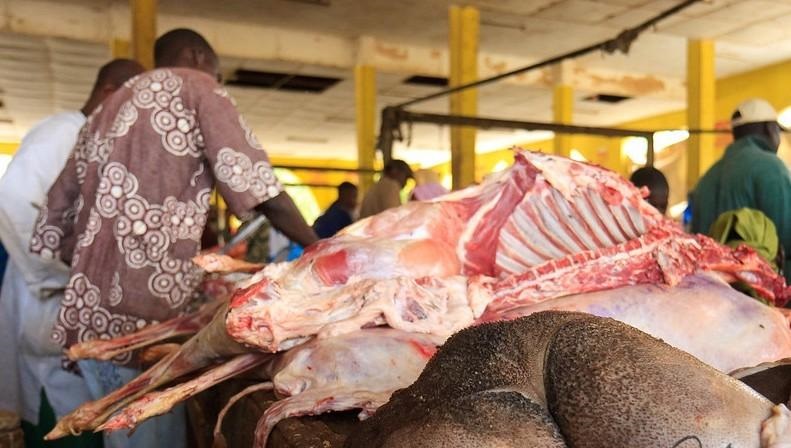Some agriculture experts have called for improved biosecurity and retraining of local butchers for cleaner and healthier abattoirs in Lagos State.
The experts made the call in separate interviews with the News Agency of Nigeria (NAN) on Wednesday in Lagos.
They spoke against the recent closure of the Oko-Oba abattoir by the Lagos State Government due to environmental violations.
They noted that appropriate measures backed with enforcement and compliance must be in place to enhance the abattoirs in the state.
Dr Segun Adebayo, the Deputy Director, Centre for Food Safety and Agricultural Research, said unsanitary practice at local abattoirs if not checked would lead to health issues.
“The reports of untreated waste being discharged into open drains, the inhumane cohabitation of humans and livestock, and other unsanitary practices must not be ignored.
“To ensure this move translates into sustainable public health and economic development outcomes, there should be rehabilitation and retraining of all butchers and associated workers.
“This can be done through the Last Mile Meat Shops & Butchers Academy, a facility established by the Lagos State Governmen, to upgrade standards in meat processing and handling.
“There should also be the construction of an ultramodern facility—Eko Meat Shop, purpose-built to meet global hygiene and operational standards,” Adebayo said.
He said the centre should be designed to reabsorb the displaced workforce to ensure job continuity while advancing Lagos State’s food safety and agricultural development goals.
“Such an integrated approach will not only mitigate the public health risks that necessitated the abattoir’s closure but also strengthen the professionalisation of meat handling in Lagos State, ultimately setting a new benchmark for other states to follow,” he said.
On his part, a strategic agriculture communication expert, Dr Ismail Olawale, said the government must enforce the application of policies in the sector to boost biosecurity measures.
“To ensure we meet up adequate biosecurity in our local abattoirs, the government should set a standard and back it up with legislative white paper.
“If already there is one, it should be upgraded to speak to existing realities with effective implementation framework implementation with good measurable indicators.
“Also, they should charge monitoring and evaluation agencies to strengthen the penalties and ensure defaulters are dealt with.
“One of the challenges of the Lagos State abattoir is that the government has allowed some areas to be residential (especially by traders from the north) who bring livestock – this should be prohibited and current residents given an ultimatum to obtain proper residential accommodation,” Olawale said.
He added that space should be provided for essential workers in the abattoirs which should be well coordinated and regulated.
“More so, special space provided for produce from the abattoir should not be accessible directly from where livestock are kept, slaughtered and prepared,” the expert said. (NAN)





